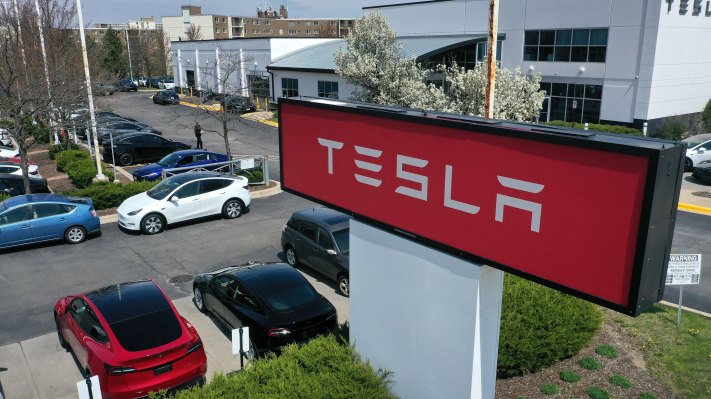[ad_1]

Tesla is planning to nearly double its component sourcing from India to up to $1.9 billion this year, the nation’s trade minister has said, underscoring the growth of electric-vehicle component manufacturing in the country. But Tesla’s long-floated promise of plans to build its own plants in the country remains electric dreams.
Tesla bought $1 billion of automobile components from India in 2022, and it is targeting to take it to $1.7–$1.9 billion this year, India’s commerce minister Piyush Goyal said at an auto event in New Delhi on Wednesday.
“We’ll start enjoying the fruits of new technologies, innovation and R&D coming into India. The auto component industry will not only then produce for a larger India demand, but with the same [components] models being sold in the rest of the world, we will also start exporting those components,” the minister said.
In June, Tesla CEO Elon Musk met with Indian Prime Minister Narendra Modi in the U.S. Following the meeting, Musk said Tesla was looking to invest in India and establish its local presence in the Indian market “as soon as humanly possible.” But he did not provide any timeline, nor investment plan, nor other details.
There have been ongoing discussions between Tesla and New Delhi to bring the carmaker to the South Asian nation for years. Some of that promise has been used as stick rather than a carrot by the company. Last year, for example, Musk said that manufacturing its vehicles locally in India would not come before the company was given a green light to sell and service imported vehicles there.
Tesla currently manufactures Tesla and Tesla components in five countries, including the U.S., and China is the only one of those countries in Asia. (The other plants are in Canada, Germany and the Netherlands). India has been floated as a center for Tesla’s EV making since 2021, which has played not just into India’s fixation on competing with China, but also the country’s ambition to be a producer and major customer for the electric vehicle market.
“In many cases, particularly, for example, in taxis, public transport in buses, we already see electric vehicles having become a very compulsive investment case,” Goyal said today.
Yet EVs, so far, are insignificant in India. They accounted for only around 2% of all four-wheeled vehicles sold between January-July of this year. The Indian government wants to expand that to 30% of all four-wheeled vehicles sold by 2030. Local carmaker Tata Motors, alongside Chinese makers BYD and MG Motor (owned by SAIC), are among those leading in EV sales now. India’s Maruti Suzuki and Mahindra, as well as global players including Hyundai and Honda have yet to introduce EVs in the country.
[ad_2]
techcrunch.com




